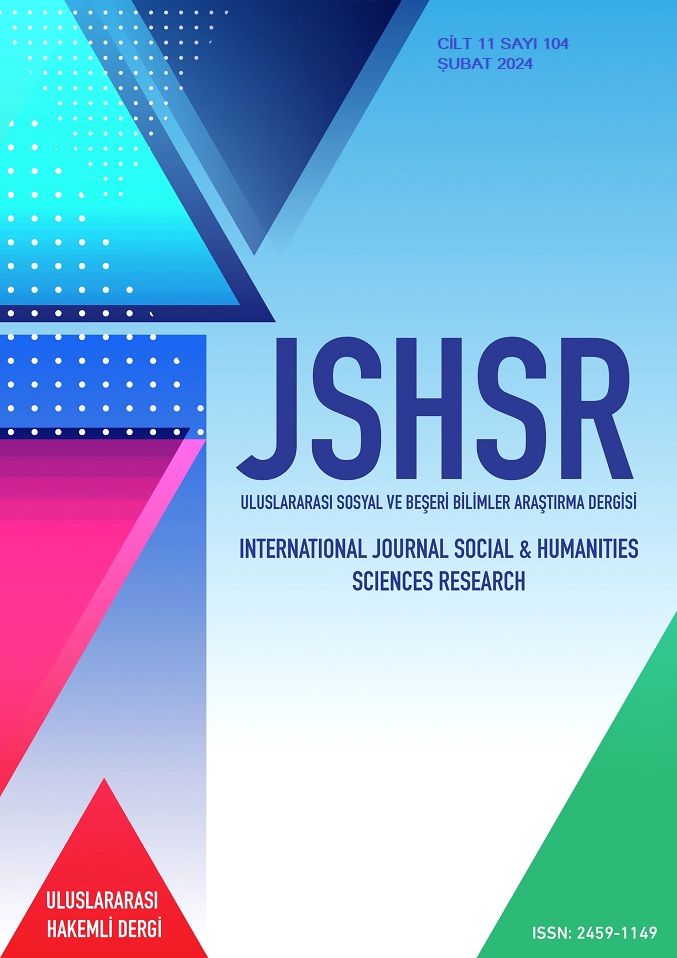International Environmental Conventions and Environmental Policies in Türkiye
DOI:
https://doi.org/10.5281/zenodo.10732724Keywords:
Environment, Environmental Policy in Turkey, Environmental Regulations, International Environmental ConventionsAbstract
It is a reality that human beings living on Earth are struggling to continue their lives and interact with nature in this way that they are doing this struggle. It has become necessary to address the point of view of human beings interacting with their environment on environmental problems in today's world and where environmental problems have come from the past to the present on a global scale and to bring solutions. In this context, many contracts and agreements realized on an international scale show that the importance of the environment is increasing even more. The initiatives that countries will make in a national context will be an important place for the environment in an international sense. It will not be denied that initiatives to be made on environmental problems are of great importance in an international sense. First of all, we see that the Stockholm Conference organized by the United Nations in 1972 will be considered a very important start on the environment. This conference is being held at a broad participation level and is being taken very seriously in terms of developing a holistic view of the environment. One of the conclusions to be drawn from this is the date set as World Environment Day. Therefore, it is accepted that the first conscious steps were taken with the determination of the environmental day. The Stockholm Conference has been accepted as a serious start by all participating countries and has taken its place among the issues to be discussed in our country.
References
Adams, W.M. (2001). Green Development: Environment and sustainability in the third world (2.Baskı). London: Routledge.
Alagöz, M. (2007). Sürdürülebilir Kalkınmada Çevre Faktörü: Teorik Bir Bakış, Uluslararası Hakemli Sosyal Bilimler Dergisi, 11, 1-12.
Algan, N., & Dündar, A. K. (2005). Türkiye'nin Çevre Konusunda Verdiği Sözler, Tübitak Matbaası.
Algan, N. (2008). İklim Etiği. Mülkiye Dergisi, 32(259), 191-204.
Aytekin, N. (2010). Türkiye’de Gazete Reklamlarında Doğa İmgesinin Sunumu, [Yayımlanmamış Doktora Tezi], Ege Üniversitesi Sosyal Bilimler Enstitüsü.
Bal, H.Ç. (2012). Sürdürülebilir Kalkınma Çerçevesinde Çevre Sorunlarıyla Mücadele Aracı Olarak Kirlilik İzleri Piyasasının Etkinliği, [Yayımlanmamış Doktora Tezi], Gazi Üniversitesi Sosyal Bilimler Enstitüsü.
Başol, K. & Gökalp M. (2009). Ekonomi ile Çevre Sorunları Arasındaki İlişkilere Bir Bakış-I. http://www.ekolojidergisi.com.tr//1-9.pdf.
Budak, S. (2000). Avrupa Birliği ve Türk Çevre Politikası. Büke Yayınları.
Baykal ve Baykal, (2008). Küreselleşen Dünya'da Çevre Sorunları, 5(9), 1-17
Görmez, K. (2007). Çevre Sorunları, Nobel Yayınevi.
Hamamcı, C. (1997). Çevrenin Uluslararası Boyutu, (Yay. Haz.: Ruşen Keleş). İnsan Çevre Toplum içinde (s. 394-412). İmge Yayınevi.
Karasar, N.(1984). Bilimsel Araştırma Metodu. Hacettepe Taş Kitapçılık.
Kaya, Y. (2011). Çok Taraflı Çevre Anlaşmalarına Uyum Sorunu ve Türkiye Üzerine Bir Değerlendirme, Suleyman Demirel University Journal of Faculty of Economics & Administrative Sciences, 16/2, 439-462.
Keleş, R., Hamamcı, C. & Çoban, A. (2012). Çevre Politikası, İmge Kitabevi.
Keleş, R. ve Hamamcı, C. (2005). Çevre Politikası. (5. Basım), İmge Kitabevi.
Konur, M. (2012). Avrupa Birliği Çevre Politikası ve Türkiye Üzerine Etkileri, (Yayımlanmamış Yüksek Lisans Tezi), Niğde Üniversitesi Sosyal Bilimler Enstitüsü.
Meadows, D. H., Meadows, D. L., & Randers, J. (1993). Beyond the limits: an executive summary, Bulletın Of Scıence Technology And Socıety, 13/1, 3-14.
Newman, P. (2003). The Social Side of the State Sustainability Strategy. Department of the Premier and Cabinet, Government of Western Australia. http://www.nrm.wa.gov.au/media/19609/state_ sustainability_strategy_2003. pdf.
Özey, R. (2005). Çevre sorunları. Aktif Yayınevi.
Özmehmet, D. E. (2008). Dünyada ve Tükiye’de Sürdürülebilir Kalkınma Yaklaşımları, Journal of Yaşar University, 3(12), 1853- 1876.
Talu, N. (2004). TBMM’de Çevre Siyaseti, Nobel Yayınları.
Türkeş, M., Sümer, U. M. ve Çetiner, G. (2000). Küresel iklim değişikliği ve olası etkileri. Çevre Bakanlığı, Birleşmiş Milletler İklim Değişikliği Çerçeve Sözleşmesi Seminer Notları, 1-17.
Torunoğlu, E. (2003). Tübitak Vizyon 2023: Panel için notlar: Sürdürülebilir kalkınma paradigması üzerine ön notlar. Tübitak.
Toprak, Z. (2012). Çevre Yönetimi ve Politikası, Albi Yayınları.
Türk, M. & Gök, A. (2010). Yeşil Pazarlama Anlayışı Açısından Üretici İşletmelerin Sosyal Sorumluluğu, Elektronik Sosyal Bilimler Dergisi, 9(32), 199-220.
UN Climate Change (2019). What is the Paris Agreement, https://unfccc.int/process-and-meetings/the-paris-agreement/what-is-the-parisagreement.
Yıldız, K., Sipahioğlu, Ş., & Yilmaz, M. (2009). Çevre Bilimi ve Eğitimi, Gündüz Eğitim ve Yayıncılık.
Yıldırım, A. & Şimşek, H. (2020). Sosyal bilimlerde nitel araştırma yöntemleri, (12. Baskı). Seçkin.
Downloads
Published
How to Cite
Issue
Section
License
Copyright (c) 2024 INTERNATIONAL JOURNAL OF SOCIAL HUMANITIES SCIENCES RESEARCH

This work is licensed under a Creative Commons Attribution 4.0 International License.


